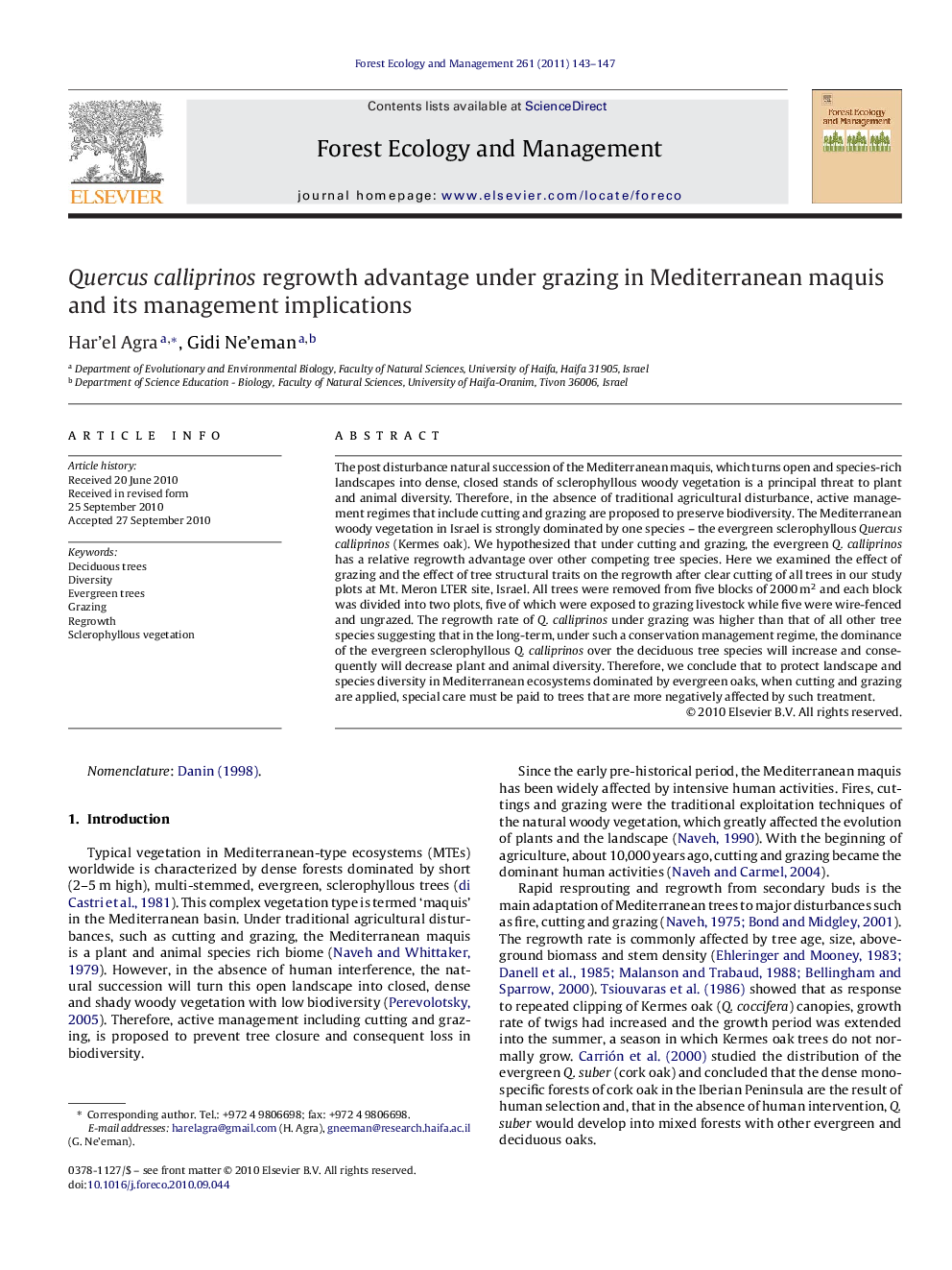| کد مقاله | کد نشریه | سال انتشار | مقاله انگلیسی | نسخه تمام متن |
|---|---|---|---|---|
| 88135 | 159285 | 2011 | 5 صفحه PDF | دانلود رایگان |

The post disturbance natural succession of the Mediterranean maquis, which turns open and species-rich landscapes into dense, closed stands of sclerophyllous woody vegetation is a principal threat to plant and animal diversity. Therefore, in the absence of traditional agricultural disturbance, active management regimes that include cutting and grazing are proposed to preserve biodiversity. The Mediterranean woody vegetation in Israel is strongly dominated by one species – the evergreen sclerophyllous Quercus calliprinos (Kermes oak). We hypothesized that under cutting and grazing, the evergreen Q. calliprinos has a relative regrowth advantage over other competing tree species. Here we examined the effect of grazing and the effect of tree structural traits on the regrowth after clear cutting of all trees in our study plots at Mt. Meron LTER site, Israel. All trees were removed from five blocks of 2000 m2 and each block was divided into two plots, five of which were exposed to grazing livestock while five were wire-fenced and ungrazed. The regrowth rate of Q. calliprinos under grazing was higher than that of all other tree species suggesting that in the long-term, under such a conservation management regime, the dominance of the evergreen sclerophyllous Q. calliprinos over the deciduous tree species will increase and consequently will decrease plant and animal diversity. Therefore, we conclude that to protect landscape and species diversity in Mediterranean ecosystems dominated by evergreen oaks, when cutting and grazing are applied, special care must be paid to trees that are more negatively affected by such treatment.
Research highlights▶ An active management regime is proposed in aim to prevent Mediterranean landscape from turning into dense maquis with low biodiversity. ▶ Our results suggest that under a conservation management regime that includes cutting and grazing, the dominance of Q. calliprinos will increase and consequently will decrease plant diversity. ▶ We conclude that to protect biodiversity in Mediterranean ecosystems dominated by evergreen oaks, when cutting and grazing are applied, special care must be paid to trees that are more negatively affected by such treatment.
Journal: Forest Ecology and Management - Volume 261, Issue 1, 1 January 2011, Pages 143–147